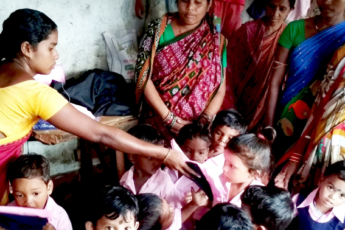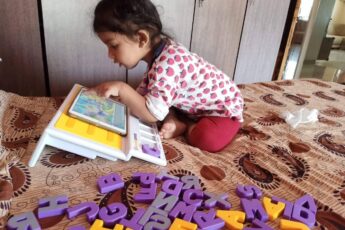Fostering A Growth Mindset Amongst Children

Nowadays, most parents are keen to give their children the best they can, especially regarding education. The challenge lies in the fact that most of us are taught by someone with a performance mindset, which believes students learn best when motivated by punishment and reward. Now, this may work for some, but more than likely will result in extrinsic motivation that will create stress, anxiety, and fear. However, just understanding what a growth mindset is and how it can help your child could bring about noticeable transformations at home and school.
What Does a Growth Mindset Mean?
A growth mindset is a psychological concept born from developmental psychology. It was primarily developed by Carol Dweck, and is mainly inspired by work on cognitive development and self-perception in the 1960s and 1970s. A growth mindset hypothesizes that you can develop your intelligence and abilities through hard work and dedication.
A person with a growth mindset believes that with effort and determination, you can continuously transform your capacities. It views abilities as malleable rather than static. Research suggests that people can change their capabilities through learning and effort, which will positively impact classroom behaviour and academic achievement.
Fixed Mindset vs. Growth Mindset
Students believe their basic qualities, like their intelligence or talent, are simply fixed traits in the fixed mindset. They spend their time documenting their intelligence or talent instead of developing them. They also believe that talent alone creates success — without effort. But the effort is where the growth mindset of students really shines.
In a growth mindset, students understand that intellect and talent are just the starting point. This allows them to follow a healthy mix of passion and perseverance to achieve more than they thought possible. A student with a growth mindset will know that mistakes are typical and there is always room for improvement. The key to success lies in learning from such errors and using them as a platform to grow.
How Do You Foster A Growth Mindset In Your Child?
It’s no secret that today’s educational environment is more focused on students meeting grade-level proficiency on standardized tests than embracing a passion for lifelong learning. In fact, the current emphasis on testing has negative implications for children’s development and subsequent achievements. Here’s how you can change this and develop a growth mindset for your child.
📌 Reward the Process
Rewarding the effort and strategies they put forth during their assignments rather than praising the outcome or final grade will teach them to focus on getting better at tackling different kinds of problems, not just trying harder. Encourage your child to celebrate their ability to persist and improve. Rewarding even small steps toward a significant achievement helps develop the mindset needed to reach any goal. It’s essential to be clear about your expectations, so your child knows how to achieve success. This way, if they struggle with a concept or aren’t quite there yet, you can identify the issue, and find the solution together.
📌 Mind Your Language
The way we talk about children’s accomplishments and challenges can impact how they view themselves. Schools tend to employ language that makes children feel like failures when it comes to the grade system. For example, teachers use terms like “see me” or “remedial reading.” These phrases can sound scary to kids, even though the assignments are not particularly difficult. The language schools use tells students that they are failing instead of needing some extra focus or skills work. This creates an impossible standard for kids to live up to. It reinforces negative thoughts that can lead to further issues down the road.
Language and the words we choose to use in talking about intelligence and ability can significantly impact how children view themselves and their future life opportunities. If you talk to kids in this way, they’ll feel more self-confident about themselves. You can ask them, “What strategies are you using when you study?” Also, discuss current events your child is passionate about. They’ll be glad that someone is interested in their hobbies and interests. Showing that you care will encourage kids to stay connected to the ones they love.
📌 Show Them What a Growth Mindset Is
The best way to teach a child a growth mindset is by example. Children learn visually, and they also learn from the behaviour of their parents. Parents who practice fixed mindset behaviour can inadvertently teach their children fixed mindset thinking.
If you want to raise a child who believes they can master challenging tasks and reach their goals, you need to model the right kind of thinking and behaviour. Hard work and perseverance are crucial. If you’re able to develop a growth mindset along with your child, he or she will be more likely to maintain it throughout her life, regardless of the challenges faced.
Generate opportunities to model behaviours related to a growth mindset in both learning and non-learning situations. As you model a growth mindset, be specific about working through mistakes to approach challenges with a growth mindset. This helps children learn how they can use their own thinking in similar ways.
At Square Panda India, we provide education and interactive learning programs that instill a growth mindset. Our learning programs are humanized and dynamic. Unlike a traditional school, we design lessons based on each student’s unique pace and requirements and monitor their progress through these metrics instead of giving them grades. To know more, visit https://ecce.squarepanda.in/




Leave a Comment